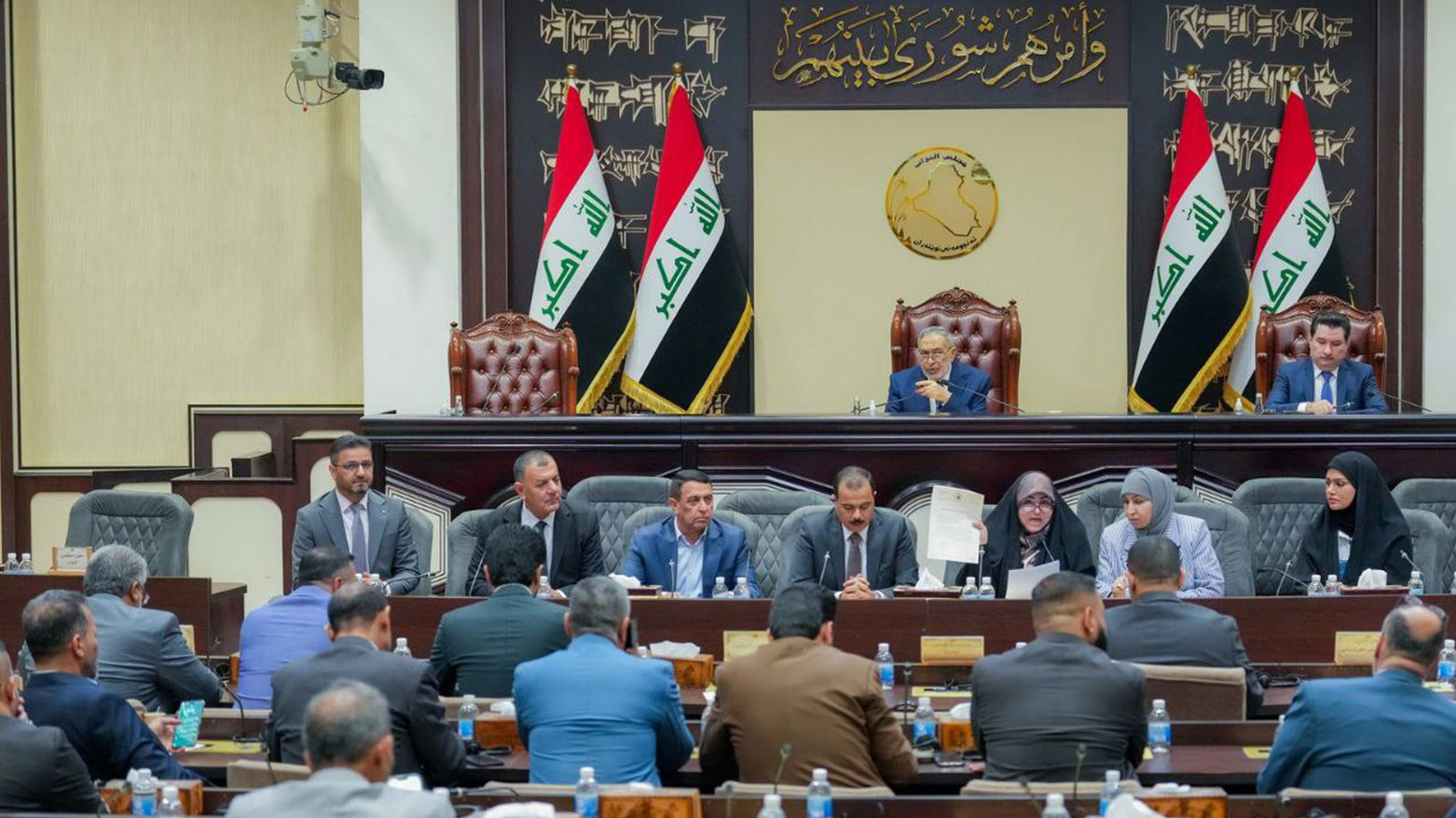Iraqi MP Likens Current Parliament to Ba’ath-Era Assembly, Slams Political Deadlock
Observers argue that Iraq’s political stalemate is less about the ghost of the Ba’ath and more about the entrenched interests and failures of the current ruling class.

By Ahora Qadi
ERBIL (Kurdistan24) – Independent Iraqi lawmaker Raed Maliki delivered a blistering critique of the current parliamentary session, comparing its performance to the former Ba’athist regime’s National Assembly prior to 2003, warning of deepening dysfunction and mounting political interference.
Speaking to Kurdistan24 on Thursday, Maliki said, “Parliament has become an extension of the ‘State Administration Coalition,’ functioning more like Saddam Hussein’s National Assembly than a democratic institution.”
The MP revealed that over 40 legislative bills have been submitted for debate, yet only ten have reached their first reading. “Each time Parliament convenes, it collapses into chaos or disbands with vague pretexts,” he added.
Political Gridlock and Executive Overreach
Maliki further argued that “the government’s dominance over parliamentary procedures has compounded the legislative paralysis,” noting that ministers act unilaterally and execute their agendas with minimal oversight.
Echoing similar concerns, fellow independent MP Amir Maamouri earlier stated that the current parliamentary cycle had only summoned two ministers so far, despite having prepared at least seven requests to question high-ranking government officials. “Systematic political obstruction remains the primary barrier,” Maamouri said.
A Parliament in Crisis
Maliki's stark comparison to the Ba’athist-era assembly comes amid a wider public discourse accusing Iraq's political elite of undermining institutional governance. The critique resonates with widespread frustration over the legislature’s inability to hold the executive branch accountable or push forward essential legislation.
Observers point to recurring political crises and premature election debates as triggers for increasingly vocal warnings about the resurgence of Saddam Hussein’s Ba’ath Party, which was outlawed after the 2003 US-led invasion. Critics argue, however, that such warnings are often weaponized for political gain rather than rooted in fact.
In a recent televised address, former Prime Minister Nouri al-Maliki—leader of the State of Law Coalition—revived these concerns, asserting that “Ba’athist cells remain tools of Iraq’s enemies.” But analysts say these claims often target dissenters of the current political system and serve as deflection from governance failures.
A Legacy of Fear and Distraction
Though the Ba’ath Party has been banned since the passing of Iraq’s 2005 “De-Ba’athification Law,” it continues to be invoked rhetorically by political actors. Analysts believe this tactic is frequently used to distract from pressing issues such as poor public services, endemic corruption, and political fragmentation.
With no influential Ba’ath figures remaining active in Iraqi politics, references to the party are largely symbolic. Nonetheless, their invocation often stirs public sentiment and headlines—especially on social media, where they spark cycles of satire and condemnation.
Observers argue that Iraq’s political stalemate is less about the ghost of the Ba’ath and more about the entrenched interests and failures of the current ruling class. As Raed Maliki concluded, “The crisis is not one of laws or parties—it’s a crisis of political will.”